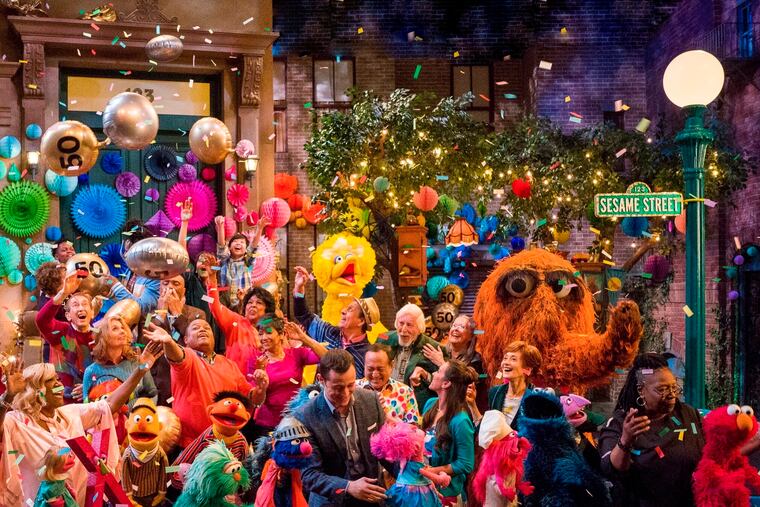Sesame Street is one of our best exports — so why does the Trump administration want to cut its funding? | Opinion
If the Trump Administration gets its way, some of these international versions of Sesame Street could lose their funding from the United States. And that’s bad news for America, and for the world.

Last week, Sesame Street launched its 50th season. To celebrate, the Empire State Building was lit in yellow and green, and a star-studded cast joined the Muppets on a primetime special to sing and dance and reminisce. The partying echoes around the world, as over 30 localized versions of Sesame Street are broadcast in more than 150 countries.
But if the Trump Administration gets its way, some of these international versions of Sesame Street could lose their funding from the United States. And that’s bad news for America, and for the world.
Since 2000, the U.S. government has provided funding for 14 versions of the program, but now only funds 3—in Afghanistan, Bangladesh, and Ethiopia. This reduced funding may be part of broader budget cuts in international aid. The Trump Administration has proposed cutting $2.3 billion from USAID and $2 billion from the State Department—both of which fund Sesame programs.
These cuts are a mistake. Sesame Street is one of our best exports. It promotes valuable ideals of diversity and tolerance and provides children with critical access to early childhood education. As such, these programs can help to build more peaceful societies. We need to continue funding them.
As with all global media, it makes sense to worry whether Sesame Street is exporting American values. But the programs are painstakingly localized—co-created by local producers and Sesame Workshop in New York. Episodes feature local children, scenes, and storylines—mixed in with favorite Muppets.
As a result, in some countries, versions of Sesame Street are the most “local” thing on air for children. This was the case in Nigeria, where I spent nine months studying the Nigerian Sesame Square. Surprisingly, Sesame Square was one of the most Nigerian shows for young viewers—especially compared to other popular programs such as SpongeBob SquarePants and Tom and Jerry. Children and parents I spoke with were pleasantly surprised to see characters and scenes that reflected their realities.
In an ideal world, all countries would have their own thriving children’s media markets. But in many countries, educational children’s TV is nonexistent. Local producers struggle to compete with global behemoths like Disney, Nickelodeon, and Cartoon Network. Until local markets can be better developed, Sesame Workshop helps to build local media-producing capacity. In some cases, local funders have taken over supporting programs.
So why should we be funding these Sesame programs? In addition to promoting critical early childhood education, Sesame programs promote tolerant worldviews. This looks different in different places. On Nigeria’s Sesame Square, Muppets allude to religious coexistence when they talk about how a mosque call to prayer and church bells are “sounds in our community.” On the program in Kosovo, Serbian and Albanian children learned about each other’s holidays.
Addressing diversity is extremely challenging, especially in countries experiencing identity-based conflicts. My recent book, “Can Big Bird Fight Terrorism?” explores the dilemmas that arise when designing a multicultural curriculum amidst ongoing ethno-religious violence. Nigerian Sesame creators struggled with how to represent diversity without exacerbating stereotypes, and worried that the ongoing violence would undermine Sesame Square’s messages.
But these peaceful, inclusive messages need to continue, and the U.S. can help to disseminate them. Particularly when the Trump administration is rolling back the U.S.’s commitment to immigrants, refugees, and human rights more broadly, Sesame programs can help to show that the U.S. is still dedicated to building pluralist, peaceful societies. Money spent on exporting Sesame Street and other educational programs is a tiny amount compared to our military spending. But the Muppets may be some of our most valuable ambassadors.
Naomi Moland is on the faculty at the School of International Service at American University. Her book on the international versions of Sesame Street, “Can Big Bird Fight Terrorism?” was published this month by Oxford University Press.